409A Valuations for Private Companies

What Is a 409A Valuation?
Both public and private companies regularly
offer deferred compensation to their employees in the form of stock options and
retirement plans. The open market determines the value of stock options for
public companies. But private companies whose shares aren't publicly traded
must rely on different methods to price stock options.
Safe Harbor Presumptions
The IRS grants safe harbor status to three
distinct valuation methods. In the event of an audit, this status ensures that
private companies need not defend their appraisal. Instead, the IRS must
demonstrate safe harbor valuations to be "grossly unreasonable," a high burden
of proof, before imposing penalties.
Safe Harbor via the Independent Appraisals Presumption
Hiring an independent appraisal company to
conduct a 409A valuation is the easiest path to safe harbor and, therefore, the
most common. Companies should look to reputable firms, like B. Riley, that rely
on established valuation techniques to perform the appraisal.
It's essential to find a firm that's truly independent, as conflicts of interest can jeopardize the valuation's safe harbor status. Thus, companies should steer clear of appraisers with a vested interest in the valuation. If the IRS deems the valuation grossly unreasonable, penalties could double shareholders' tax obligations and consequently expose the company to litigation risks.
Safe Harbor via the Binding Formula Presumption
Companies that wish to keep appraisals
in-house may still earn safe harbor by valuing their generally applicable
repurchase formula. The company must use the same formula to value its stock
for all binding agreements, both compensatory and non-compensatory.
Such formulas typically calculate value as a percentage of tangible benchmarks, commonly sales, net income, or EBITDA. Because the binding formula restricts companies from valuing their stock in other ways, most companies pursue alternative appraisal methods.
Safe Harbor via the Illiquid Start-up Presumption
The IRS provides start-ups with an additional valuation method that qualifies for safe harbor. The start-up must be reasonably certain that they will not file for an IPO within 180 days nor undergo a change in control within 90 days. Additionally, this presumption applies only to start-ups founded within 10 years of the valuation date.
If the company meets these criteria, any individual "with sufficient knowledge, experience, and skill in valuing illiquid stock of a start-up corporation" may conduct the appraisal. Such an individual may be an employee or a third party. Regardless of their employment status, they should have a minimum of five years of experience performing valuations or similar work.
How Often Do You Need a 409A Valuation?
409A valuations remain valid for 12 months. Thus, companies should plan on yearly appraisals if they plan to continue offering stock options. However, any material event that affects the worth of a company's stock invalidates previous valuations. Material events might include:
- Securing a new round of qualified financing
- Merger and acquisition offers
- Changes to the business model or cash flow
- Signing significant, long-term contracts
- Tightened regulations
- Substantially exceeding or missing financial projections
- Considering an IPO
Safe harbor presumptions protect companies that value their stock options at or above their 409A valuation. As a result, it's more important to update valuations after material events that could negatively impact the appraisal.
409A Valuations vs. Venture Valuations
409A valuations determine the fair market
value of common shares of stock. Venture capital valuations determine the value
of the preferred shares. In most cases, VC valuations will be significantly
higher than 409A valuations. This is, in part, because preferred stock receives
higher dividends and greater repayment claims in event of bankruptcy.
409A Valuation Methods
Different valuation methods can return
dramatically different results. At B. Riley, we often combine these
methodologies and employ more sophisticated models to ensure the accuracy of
our appraisals. As a result, our reports have consistently proven
audit-defensible when scrutinized.
The Market Approach
Also known as the options pricing model (OPM)
backsolve approach, the market approach is commonly used to value early-stage
businesses and those failing to turn a profit. It relies on the most recent
round of financing and financial data from similar public companies to
calculate the FMV of common shares.
The Asset Approach
Appraisers turn to the asset approach for early-stage companies that lack financing and revenue. Without a positive cash flow, this approach equates the value of a company with the new replacement cost of its assets.
The Income Approach
Revenue-generating companies are often valued via the income approach. The method appraises the value of a company as the difference between its assets and liabilities.
409A Valuation Requirements
Companies will need to provide all recent financial data when seeking 409A valuations to ensure accuracy. They also need to supply information regarding their business model. When seeking valuation services, companies should have current versions of the following data available:
- Articles of incorporation
- Cap table
- Historical profit and loss statements
- Debt projections
- Estimated number of options to be granted
- Examples of public competitors
- Details about upcoming or recent material events
- Marketing Deck
Secure a 409A Valuation Report for Your Company
B. Riley's experienced accounting team will
provide your company with an exhaustive 409A valuation report that will stand
up to the scrutiny of an auditor. Reach out to us today to get started.
Key Contacts

Ian Ratner
Chief Executive Officer, B. Riley Advisory Services

Ronald Glass
Senior Managing Director

Andy Moore

Jimmy Baker
President & Head of Capital Markets

Mike McCoy

Dawn Farrell

Perry Mandarino

Mike Crawford
Senior Managing Director, Head of the Discovery Group

Craig A. Ellis

Eric Rajewski

Knut Grevle
Senior Managing Director & Head of Equity Trading

Alan Barbee
Senior Managing Director

Paul Dopp
Senior Managing Director

Carol L. Fox
Senior Managing Director

Kip Hamilton
Senior Managing Director

Samuel Hewitt
Senior Managing Director

J. Michael Issa
Senior Managing Director

Mark Shapiro
Senior Managing Director

Michael Spindler
Senior Managing Director

Wayne P. Weitz
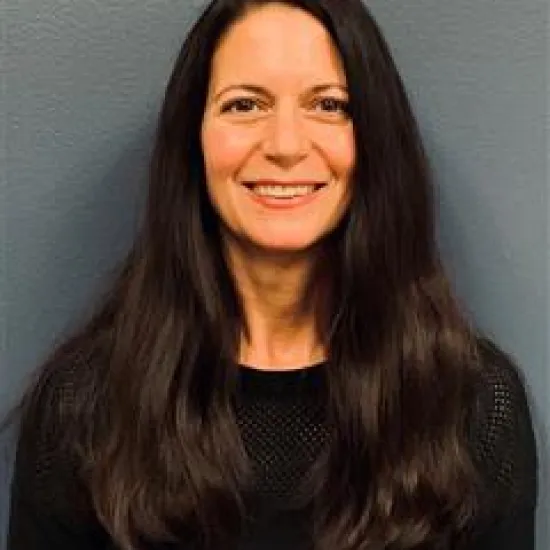
Selin Wold

Kara Anderson

Sarkis Sherbetchyan

Marc Wiesenberger

Richard Magnusen
Senior Research Associate

Aman Gulani

Michael McConnell

James Flajser

Stephan Ogilvie

Michael Lowell
Senior Managing Director

Michael McHugh
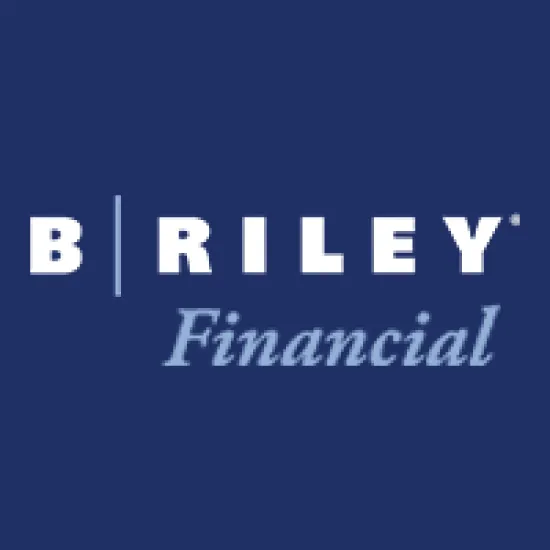
Human Resources

Tim Wood

Michael Biener

Aaron Goodwin

Howard Weitzman

Gordon Heidacker
Automotive Sector Group Head

Richard Peil
Senior Managing Director

Bryant Riley
Chairman

Dan Berman
Senior Managing Director

Ross Hickman

Antonio Pereira
Senior Managing Director

Brent King

Eric Lange
Senior Managing Director Strategic Growth

Adam Hurst

Austin Bandoian
Contractor

Greg Eidson
Managing Director

Tess Wolff

Todd Beresin
Senior Managing Director

Jin Wang

Joseph Pegnia

Jonathan Eargle
Director

Duane Lohn
Senior Managing Director

Bryant Riley
Co-Chief Executive Officer, B. Riley Financial

Tom Kelleher
Co-Chief Executive Officer, B. Riley Financial

Gary Olsen
Senior Managing Director

Wayne P. Weitz
Senior Managing Director

Philip Zanone
Chief Operating Officer, B. Riley Wealth

Marshall Glade

Matt Barberich

Janet Pritchard

Mark Jenkins

Steven Walker

Shevi Smith

Seth R. Freeman
Senior Managing Director

Michael Thatcher

Michael Proctor
Senior Associate

Michael Fuqua

Steve Bonnema

Corey Gooch

Jennifer Posten

Joel Murovitz

Jonathan Vukanovich

Jonathan Wernick

Alan Forman
Executive Vice President & General Counsel, B. Riley Financial

Karyn Kalita

Kelley Gastineau

Joseph Aber

Judah Dominguez

Laura Clemente

Irene Byela

Gaston Mauvezin
Senior Managing Director

Eric Lee

Marc Spizzirri
Senior Managing Director

Wen Tan

Howard Weitzman
Chief Accounting Officer

Aaron Goodwin, CISSP, CCISO
Chief Information Security Officer

Jennifer Copeland

Tim Wood
Chief Information Officer
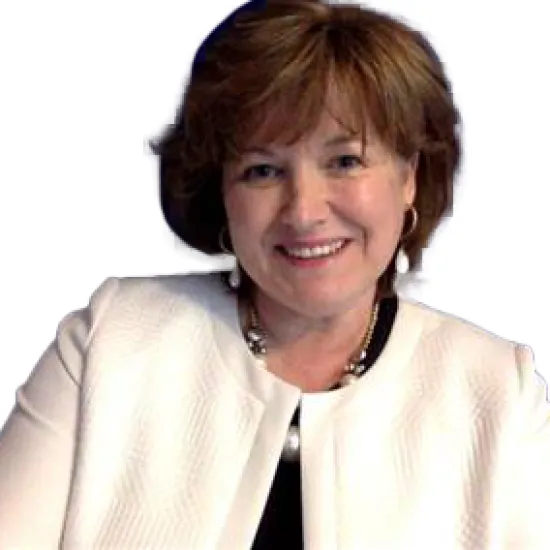
Nancy Feeney
Chief Human Resources Officer

Michael Biener
Deputy Chief Information Officer

Gary Chase
Co-Chief Operating Officer, B. Riley Corporate Services

Bernadette Lombardo

Bill Hughes

Chris Meadors

Clay Busker

Craig Jacobson

Cyrus Sharp

Teresa Licamara

Todd Sims
President, B. Riley Venture Capital

Coral Hansen

David Greenblatt

William Buckley
Managing Director

Steve Gilmer

Kelly Graham

Victoria Piccirillo
Co-Chair
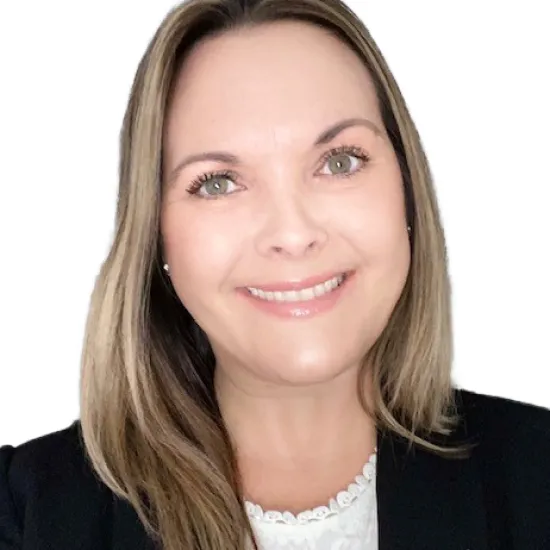
Dana Coffaro
Secretary

Perry Mandarino
Head of Restructuring

Craig Ellis
Director of Research

Ananth Veluppillai
Chief Executive Officer, B. Riley Telecom Practice

Nick Capuano
Chief Investment Officer

Mike Crawford
Head of the Discovery Group

Dawn Farrell
Chief Administrative Officer

Mike McCoy
Chief Financial Officer

Knut Grevle
Head of Equity Trading

Eric Rajewski
Head of Institutional Sales

William E. Cook, ASA

Stephanie Tinnes
Business Accounting Supervisor

Ryan Lutz
Director

Jeffrey R. Truitt
Senior Managing Director

Benjamin Kehler

John Sordillo
Senior Managing Director

Eric Mazur
Senior Digital Investigations Consultant

Phu Nguyen

Becky Yang O'Malley

Jasdev Singh

Erik Seiersen

Brian Keith
Director, Data Analytics

Nicolas Chandler

Emily Eisenhauer Freling, CDFA
Sub-Committee Chair

Benjamin Cartoon
Associate Director

Michael Mullen
Chief Executive Officer, B. Riley Wealth

Mary Swain
Chief Financial Officer, B. Riley Wealth

Dan Ortega
Chief Compliance Officer, B. Riley Wealth

Kate Kelly
Chief Talent Officer

Martin J. Burke
Managing Director

Michael Del Pero
Senior Managing Director

Nishen Radia
Senior Managing Director, Head of M&A

Teri Kendall
Director

John DeSena
Co-Chief Operating Officer, Corporate Services

Becky Popoff
Director

Jaimie Barry
Vice President, Corporate Access

Thomas McGlynn
Senior Managing Director

Joseph Puliafico
Director

John Cogan
Managing Director, Head of Control Room

Chris Munck
Managing Director

David Hill
Senior Managing Director

Timothy Paisley
Managing Director

Teri Kendall
Senior Vice President

Andy Moore
Chairman & Co-Chief Executive Officer, B. Riley Securities

Jimmy Baker
Co-Chief Executive Officer & Head of Capital Markets, B. Riley Securities

Jaimie Barry
Vice President, Corporate Access

Natalie Bend
Vice President

Igor Belov
Director

Brian Taylor
Managing Director

Chad Ritchie
Managing Director

Craig Krinbring
Managing Director

Ernie Dahlman
Managing Director

Michael Cavanagh
Managing Director

Chris Ankley
Managing Director

Jonathan Mitchell
Senior Managing Director

Greg Presson
Senior Managing Director

Matt Spain
Senior Managing Director

Scott Ammaturo
Senior Managing Director, Head of ATM Trading

Michael Lowell
Senior Managing Director

Mayank Mamtani
Senior Managing Director, Group Head of Healthcare

Liam Burke
Managing Director

Dave Kang
Senior Research Analyst

Jeff Van Sinderen
Senior Research Analyst

Zach Cummins
Senior Research Analyst

Josh Nichols
Senior Research Analyst

Kalpit Patel
Senior Research Analyst

Yuan Zhi
Managing Director

Ryan Pfingst
Senior Research Analyst

Alexandra Shaffer
Director

Jake Reimer
Vice President

Grayson Largman
Director
Ryan Aceto
Deputy Head of Equity Capital Markets

Melissa Woodson
Managing Director

Gideon Rosenbaum
Director

Keith Pompliano
Managing Director

Kathy Innis
Director

Patrick Hanniford
Managing Director

Thomas McGlynn
Managing Director

Joe Nardini
Senior Managing Director, Head of Investment Banking

Randy Binner
Managing Director

Walker Hays, CRPS®, CPFA®
Managing Director, Investments
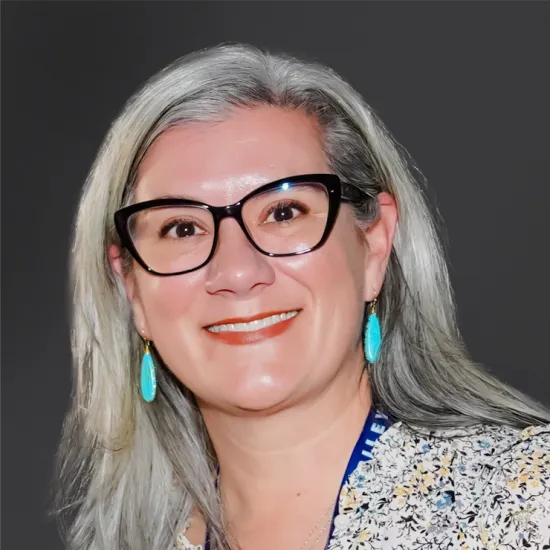
Amy Koch, CRPS®, CPFA®
Vice President, Investments

Alex Snyder, CRPS®
Financial Advisor

Mike McCall, RICP®
Managing Director, Investments

James Baroutas C(k)P®
Managing Director, Investments

Ryan McGehee

Daniel Lewis
Director

Dominic Riley
Vice President

Colin Welch
Vice President

Alex Wolodzko
Vice President

Sahil Kazmi
Research Analyst

Larry Kanter
Senior Managing Director

Thomas Scotti
Managing Director
Field Examination Services

Mike Kain

Hal Goetsch
Managing Director

Anna Glaessgen
Senior Research Analyst

Naved Khan
Managing Director

Michael Kapp
Senior Vice President

John Stack
Senior Managing Director
Robert Arnold
Senior Managing Director

Nick Glennon
Senior Vice President

Adriana Piltz

Rodney Crawford
Senior Managing Director

Daniel Agauas

Bill Crandall

John Zalecki

Lisa Zelinski

Cody Reinhold

Robert Winiarski
Senior Managing Director

Rachel Huduck
Senior Associate

Lance Beck

Sergio Negreira, CPA, CFF, JD
Senior Managing Director

Ian Brenner
Senior Managing Director

Charlene Bergman
Managing Director & Partner

Alistair Ross
Senior Vice President & Partner
Griffin Boss
Research Analyst
Michael Devitt
Managing Director
John Massocca
Senior Research Analyst

Scott Boehler
Contractor
Ry Neri
Director

Drew Gamble
Director

Adam Brown
Senior Managing Director

Alijah Pecina
Business Development Consultant

William Wood
Research Analyst

Steve Bonnema
Principal Operations Officer

Tyler Chang

Lauren Randolph
Associate Director

Adam Udell
Managing Director

Lauren Marteney

Robert Mroz
Managing Director

Max Ratner
Senior Consultant

Chris Sullivan
Senior Managing Director, Co-Leader of Construction Consulting

Lisa Heard
Senior Managing Director, Co-Leader of Construction Consulting
Karen Matthews
Managing Director
Pat Pilouk
Managing Director

Robert
Losier
Gary Lifman
SMD and President, B. Riley Farber Advisory

Allan Nackan
Senior Managing Director
Hylton Levy
Senior Managing Director
Ryan Adlington
Senior Managing Director

Richard Williams
Managing Director

Michael Shenk
Senior Managing Director

Jean-Alfred Rocourt
Associate Director

Dennis R. Rodriguez
Managing Director

Nick Giles
Senior Research Analyst

Mohamed Hashim
Associate

Andy Ackel
Managing Director

Marty O'Doherty
Partner, Private Equity and Industrial Sector
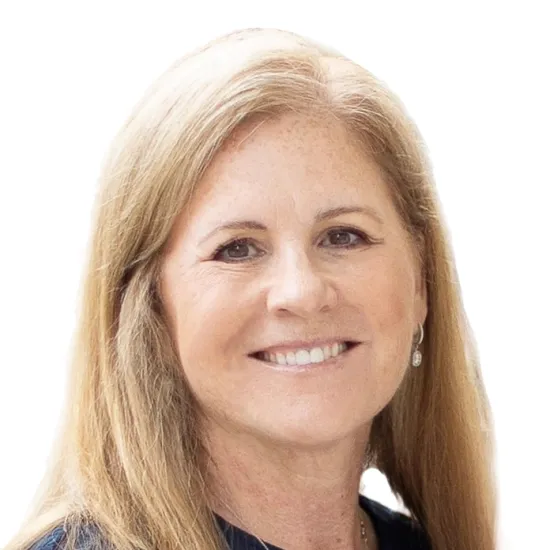
Jennifer Benjamin
Senior Managing Director

Joyce Suen
Director

Chase Perry
Managing Director

Justin Carver
Associate

Rich Bergin
Senior Managing Director

Jeffrey de Groot
Senior Associate

Thomas M. McCabe
Senior Managing Director

Samuel Wimpfheimer
Associate

Dr. Robert MacKay
Director

Sean Pattison
Managing Director

Scott Yessner
Executive Vice President & Chief Financial Officer, B. Riley Financial

Prit Patel
Associate
Business Development Officers

Ian Ratner
Chief Executive Officer, B. Riley Advisory Services

Ronald Glass
Senior Managing Director

Andy Moore

Jimmy Baker
President & Head of Capital Markets

Mike McCoy

Dawn Farrell

Perry Mandarino

Mike Crawford
Senior Managing Director, Head of the Discovery Group

Craig A. Ellis

Eric Rajewski

Knut Grevle
Senior Managing Director & Head of Equity Trading

Alan Barbee
Senior Managing Director

Paul Dopp
Senior Managing Director

Carol L. Fox
Senior Managing Director

Kip Hamilton
Senior Managing Director

Samuel Hewitt
Senior Managing Director

J. Michael Issa
Senior Managing Director

Mark Shapiro
Senior Managing Director

Michael Spindler
Senior Managing Director

Wayne P. Weitz

Selin Wold

Kara Anderson

Sarkis Sherbetchyan

Marc Wiesenberger

Richard Magnusen
Senior Research Associate

Aman Gulani

Michael McConnell

James Flajser

Stephan Ogilvie

Michael Lowell
Senior Managing Director

Michael McHugh

Human Resources

Tim Wood

Michael Biener

Aaron Goodwin

Howard Weitzman

Gordon Heidacker
Automotive Sector Group Head

Richard Peil
Senior Managing Director

Bryant Riley
Chairman

Dan Berman
Senior Managing Director

Ross Hickman

Antonio Pereira
Senior Managing Director

Brent King

Eric Lange
Senior Managing Director Strategic Growth

Adam Hurst

Austin Bandoian
Contractor

Greg Eidson
Managing Director

Tess Wolff

Todd Beresin
Senior Managing Director

Jin Wang

Joseph Pegnia

Jonathan Eargle
Director

Duane Lohn
Senior Managing Director

Bryant Riley
Co-Chief Executive Officer, B. Riley Financial

Tom Kelleher
Co-Chief Executive Officer, B. Riley Financial

Gary Olsen
Senior Managing Director

Wayne P. Weitz
Senior Managing Director

Philip Zanone
Chief Operating Officer, B. Riley Wealth

Marshall Glade

Matt Barberich

Janet Pritchard

Mark Jenkins

Steven Walker

Shevi Smith

Seth R. Freeman
Senior Managing Director

Michael Thatcher

Michael Proctor
Senior Associate

Michael Fuqua

Steve Bonnema

Corey Gooch

Jennifer Posten

Joel Murovitz

Jonathan Vukanovich

Jonathan Wernick

Alan Forman
Executive Vice President & General Counsel, B. Riley Financial

Karyn Kalita

Kelley Gastineau

Joseph Aber

Judah Dominguez

Laura Clemente

Irene Byela

Gaston Mauvezin
Senior Managing Director

Eric Lee

Marc Spizzirri
Senior Managing Director

Wen Tan

Howard Weitzman
Chief Accounting Officer

Aaron Goodwin, CISSP, CCISO
Chief Information Security Officer

Jennifer Copeland

Tim Wood
Chief Information Officer

Nancy Feeney
Chief Human Resources Officer

Michael Biener
Deputy Chief Information Officer

Gary Chase
Co-Chief Operating Officer, B. Riley Corporate Services

Bernadette Lombardo

Bill Hughes

Chris Meadors

Clay Busker

Craig Jacobson

Cyrus Sharp

Teresa Licamara

Todd Sims
President, B. Riley Venture Capital

Coral Hansen

David Greenblatt

William Buckley
Managing Director

Steve Gilmer

Kelly Graham

Victoria Piccirillo
Co-Chair

Dana Coffaro
Secretary

Perry Mandarino
Head of Restructuring

Craig Ellis
Director of Research

Ananth Veluppillai
Chief Executive Officer, B. Riley Telecom Practice

Nick Capuano
Chief Investment Officer

Mike Crawford
Head of the Discovery Group

Dawn Farrell
Chief Administrative Officer

Mike McCoy
Chief Financial Officer

Knut Grevle
Head of Equity Trading

Eric Rajewski
Head of Institutional Sales

William E. Cook, ASA

Stephanie Tinnes
Business Accounting Supervisor

Ryan Lutz
Director

Jeffrey R. Truitt
Senior Managing Director

Benjamin Kehler

John Sordillo
Senior Managing Director

Eric Mazur
Senior Digital Investigations Consultant

Phu Nguyen

Becky Yang O'Malley

Jasdev Singh

Erik Seiersen

Brian Keith
Director, Data Analytics

Nicolas Chandler

Emily Eisenhauer Freling, CDFA
Sub-Committee Chair

Benjamin Cartoon
Associate Director

Michael Mullen
Chief Executive Officer, B. Riley Wealth

Mary Swain
Chief Financial Officer, B. Riley Wealth

Dan Ortega
Chief Compliance Officer, B. Riley Wealth

Kate Kelly
Chief Talent Officer

Martin J. Burke
Managing Director

Michael Del Pero
Senior Managing Director

Nishen Radia
Senior Managing Director, Head of M&A

Teri Kendall
Director

John DeSena
Co-Chief Operating Officer, Corporate Services

Becky Popoff
Director

Jaimie Barry
Vice President, Corporate Access

Thomas McGlynn
Senior Managing Director

Joseph Puliafico
Director

John Cogan
Managing Director, Head of Control Room

Chris Munck
Managing Director

David Hill
Senior Managing Director

Timothy Paisley
Managing Director

Teri Kendall
Senior Vice President

Andy Moore
Chairman & Co-Chief Executive Officer, B. Riley Securities

Jimmy Baker
Co-Chief Executive Officer & Head of Capital Markets, B. Riley Securities

Jaimie Barry
Vice President, Corporate Access

Natalie Bend
Vice President

Igor Belov
Director

Brian Taylor
Managing Director

Chad Ritchie
Managing Director

Craig Krinbring
Managing Director

Ernie Dahlman
Managing Director

Michael Cavanagh
Managing Director

Chris Ankley
Managing Director

Jonathan Mitchell
Senior Managing Director

Greg Presson
Senior Managing Director

Matt Spain
Senior Managing Director

Scott Ammaturo
Senior Managing Director, Head of ATM Trading

Michael Lowell
Senior Managing Director

Mayank Mamtani
Senior Managing Director, Group Head of Healthcare

Liam Burke
Managing Director

Dave Kang
Senior Research Analyst

Jeff Van Sinderen
Senior Research Analyst

Zach Cummins
Senior Research Analyst

Josh Nichols
Senior Research Analyst

Kalpit Patel
Senior Research Analyst

Yuan Zhi
Managing Director

Ryan Pfingst
Senior Research Analyst

Alexandra Shaffer
Director

Jake Reimer
Vice President

Grayson Largman
Director
Ryan Aceto
Deputy Head of Equity Capital Markets

Melissa Woodson
Managing Director

Gideon Rosenbaum
Director

Keith Pompliano
Managing Director

Kathy Innis
Director

Patrick Hanniford
Managing Director

Thomas McGlynn
Managing Director

Joe Nardini
Senior Managing Director, Head of Investment Banking

Randy Binner
Managing Director

Walker Hays, CRPS®, CPFA®
Managing Director, Investments

Amy Koch, CRPS®, CPFA®
Vice President, Investments

Alex Snyder, CRPS®
Financial Advisor

Mike McCall, RICP®
Managing Director, Investments

James Baroutas C(k)P®
Managing Director, Investments

Ryan McGehee

Daniel Lewis
Director

Dominic Riley
Vice President

Colin Welch
Vice President

Alex Wolodzko
Vice President

Sahil Kazmi
Research Analyst

Larry Kanter
Senior Managing Director

Thomas Scotti
Managing Director
Field Examination Services

Mike Kain

Hal Goetsch
Managing Director

Anna Glaessgen
Senior Research Analyst

Naved Khan
Managing Director

Michael Kapp
Senior Vice President

John Stack
Senior Managing Director
Robert Arnold
Senior Managing Director

Nick Glennon
Senior Vice President

Adriana Piltz

Rodney Crawford
Senior Managing Director

Daniel Agauas

Bill Crandall

John Zalecki

Lisa Zelinski

Cody Reinhold

Robert Winiarski
Senior Managing Director

Rachel Huduck
Senior Associate

Lance Beck

Sergio Negreira, CPA, CFF, JD
Senior Managing Director

Ian Brenner
Senior Managing Director

Charlene Bergman
Managing Director & Partner

Alistair Ross
Senior Vice President & Partner
Griffin Boss
Research Analyst
Michael Devitt
Managing Director
John Massocca
Senior Research Analyst

Scott Boehler
Contractor
Ry Neri
Director

Drew Gamble
Director

Adam Brown
Senior Managing Director

Alijah Pecina
Business Development Consultant

William Wood
Research Analyst

Steve Bonnema
Principal Operations Officer

Tyler Chang

Lauren Randolph
Associate Director

Adam Udell
Managing Director

Lauren Marteney

Robert Mroz
Managing Director

Max Ratner
Senior Consultant

Chris Sullivan
Senior Managing Director, Co-Leader of Construction Consulting

Lisa Heard
Senior Managing Director, Co-Leader of Construction Consulting
Karen Matthews
Managing Director
Pat Pilouk
Managing Director

Robert
Losier
Gary Lifman
SMD and President, B. Riley Farber Advisory

Allan Nackan
Senior Managing Director
Hylton Levy
Senior Managing Director
Ryan Adlington
Senior Managing Director

Richard Williams
Managing Director

Michael Shenk
Senior Managing Director

Jean-Alfred Rocourt
Associate Director

Dennis R. Rodriguez
Managing Director

Nick Giles
Senior Research Analyst

Mohamed Hashim
Associate

Andy Ackel
Managing Director

Marty O'Doherty
Partner, Private Equity and Industrial Sector

Jennifer Benjamin
Senior Managing Director

Joyce Suen
Director

Chase Perry
Managing Director

Justin Carver
Associate

Rich Bergin
Senior Managing Director

Jeffrey de Groot
Senior Associate

Thomas M. McCabe
Senior Managing Director

Samuel Wimpfheimer
Associate

Dr. Robert MacKay
Director

Sean Pattison
Managing Director

Scott Yessner
Executive Vice President & Chief Financial Officer, B. Riley Financial

Prit Patel
Associate
